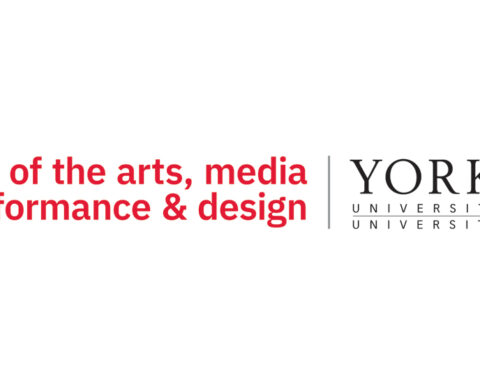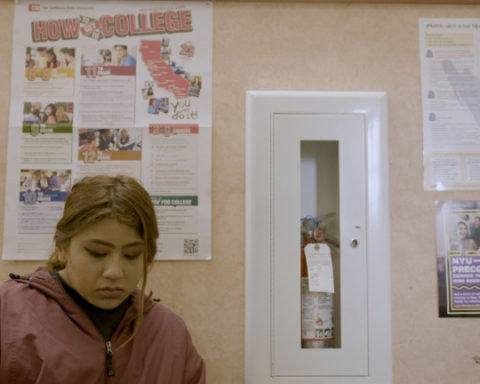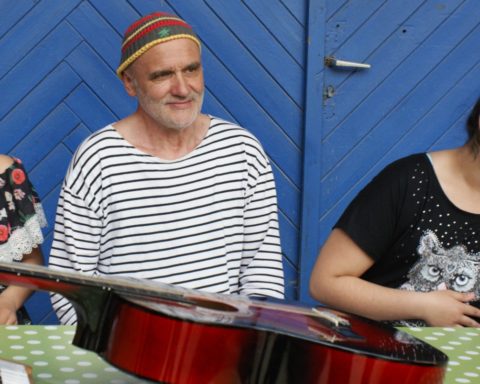Einstein on the screen
Recently, Disney, the largest children’s entertainment firm in the world, offered rebates on its hugely popular educational DVD set Baby Einstein. While the company refused to acknowledge the link, many point to the ongoing lobbying efforts by the Campaign for a Commercial Free Childhood as the reason behind the company’s capitulation. Apparently, research shows that little Abdul or Suzy can’t learn much at all from screen media, that is, if they’re under two years old.
Disney had marketed Baby Einstein to eager parents and created the impression that toddlers could indeed benefit cognitively from screen media, maybe even picking up a little physics along the way. But the information proving the contrary was all in the documentary Consuming Kids by the Media Education Foundation, an organization of academics and media makers based in Boston who produce educational documentaries on topics ranging from homophobia in hip hop culture to corporate greenwashing. Their documentary had warned of such marketing ploys.
This begs the question: if babies can’t learn from screen media, can the rest of us learn from documentaries?
Historically, documentary theory has oscillated between the information dissemination concepts of propaganda and public service/education. Propaganda is considered the false (or misleading) representation of facts for political gain, while public education is considered the unbiased transmission of cold hard facts to the unwashed masses. As mutually exclusive concepts, both are limited visions of the role documentary cinema has to play in informing audiences on a wide range of issues and as an intervening force in the public sphere. This dichotomous debate often culminates at the discursive site of a beaten-down effigy of Michael Moore, who is alternately an evil, conniving and manipulative spin-master or a saintly, selfless media mascot of the marginalized and oppressed. That said, can we learn from his movies, despite the fact that they are “entertaining”? And what of the bias in Moore’s films—doesn’t this disqualify them from having any educational quality?
A biased education?
Documentaries, like fiction films, journalism, blogging, children’s books and restaurant menus, manipulate reality. The now famous edict from the controversial nFB founder John grierson, that documentary is the “creative treatment of actuality” only nudges us toward an understanding of the genre and its capacity to deliver “truth” to audiences. And truth is indelibly connected to education. not too many would admit to seeking an education of lies and falsehoods—although propaganda can offer such an indoctrination.
As potential educators, documentarians may aspire to be truth-providers, but truth be told, they too have their own biases, limitations, political convictions and social blinders. Audience attitudes do not always recognize this however, as illustrated when one overhears an audience member opining, “That was so biased! How can we believe a word of what they say? And that was supposed to be a documentary!” Documentaries, like textbooks, are not neutral documents—and this realization should encourage students to elicit the same frustrated response to textbooks as they sometimes do to films in their classrooms.
Similarities to other educational apparatuses aside, documentary has a different role to play in the visual media multiverse, especially concerning the towering pillars of truth and objectivity. A hybrid of narrative-based storytelling, journalism, info-graphics and photo-evidence, documentary continues to pry apart ossified socio-political layers of human reality, and provide a kind of education on everything from gay rugby to toxic babies. Because of the claims of veracity that documentary stakes out in our consciences as audiences and communities, we engage the genre with expectations of truth-telling and reality-revealing that leave notions of neutrality (and often objectivity) in the bin with the Disney DVDs.
Documentary is a heterogenous media form that is so excellently suited to intervening in the public sphere, it is not surprising the education it provides is one of a progressive, critical bent. By critically intervening with powerful visual media in public discussions that are often defined by corporate media production and dissemination, documentary has a chance to insert a counter-education based on alternative perspectives and critical oppositional narratives into the contemporary western media matrix—one that is increasingly audio-visual in nature.
Literacy in the 21st Century
In their report, Literacy for the 21st Century, Part I, authors at the Centre for Media Literacy, write, “The transformation of our culture from an Industrial Age to an Information Age is why a new kind of literacy, coupled with a new way of learning, is critical in the 21st century.” Learning through documentary (and consequently teaching with documentary) requires a kind of visual literacy, if documentary is to make effective interventions into the public sphere.
Liz Miller, a documentary filmmaker (The Water Front, 2007) and professor in the Communication studies department at Concordia University, tells me that, “Documentary has a critical role to play in education. The rapid advances in media technology have forced educators like myself to rethink notions of literacy and adapt our curricula accordingly. If students are watching, listening, and producing even more than they are reading, we must ensure they have critical frameworks for analysis. We can use documentaries to raise questions around voice, truth, ethics, and a range of themes relevant to the shifting literacies of the 21st Century.”
These shifting planes of teaching, shar- ing, learning, producing and consum- ing media and knowledge amount to new shapes and roles for texts. in Miller’s case, her excellent documentary on the struggle for accessible water in a Detroit community is one text. But connected to that central audio-visual work are other texts, including an interactive website, online video clips and a comprehensive guide with sections such as “Water Privatization,” “Water as a Human Right” and “Citizen Action.” The guide is available to educators and anyone interested in expanding the critical perspective the film opens up around water and water rights. Her documentary is the centrepiece in an educational toolbox that utilizes other media and methods for exchange and dissemination of critical perspectives in the social landscape.
Documentaries have the unique capability to harness arguably the most powerful medium—cinema—in an increasingly visual culture and critically intervene in a landscape dominated by profit-oriented entertainment. This potential is even more pronounced with younger producers/audiences a.k.a. the “YouTube Generation.” I asked my niece, who is just beginning university and has taken up documentary viewing with a zeal not found in her peers, if she finds documentaries educational. As the “e” word is often said to be the death knell for viewing pleasures, I was optimistically surprised by her response: “I think being visually educated can have a greater effect on someone than if they were to simply read a book. I think the term ‘out of sight, out of mind’ is very true and documentaries give people a better understanding of issues by being able to literally see what goes on outside of everyday life. For younger people especially, who may not be very interested in traditional learning, they may find it easier to learn by watching a documentary because it’s more interesting than sitting down and reading words on a piece of paper.” This statement, made by someone recently out of high school and preparing to begin university, may nurture a moral panic with educators and literature fans everywhere, but it is a social reality that needs to be faced, and prepared for, as we continue along our social trajectory in the “Information Age.”
Erik Chevrier, a media educator and activist who works with youth in Montréal on a host of projects ranging from production to literacy, isn’t panicking. “Documentaries are audio-visual equivalents to books. They provide information about a subject and/or event as told by the writer and director of the documentary. it is our job, as educators, to train students to conduct proper research from as many sources and mediums as possible. Media is evolving rapidly. Teachers should embrace these newly developing sources of information and help students develop appropriate critical skills.” In this sense documentaries are part of an educational arsenal, deployed in conjunction with other materials, and tapping into a zeitgeist of popular visual media production and consumption the likes of which have never been seen before.
Western culture is rapidly embracing the visual, which is eclipsing traditional textual media forms. With the proliferation of technologies that produce and disseminate audio-visual media, we are increasingly creating and sharing knowledge, ideas and culture by way of images and sound. Somewhere between YouTube DIY videos, online television streaming, corporate visual marketing and viral videos, documentary emerges as a locus for critical engagement with social reality through visual storytelling. Miller argues that “What documentaries are able to do best is transmit knowledge through stories instead of statistics or data. And most of us are hard-wired to respond to stories—so we will internalize information that is presented through a story.”
The best educational documentaries are the ones that are able to impart information (such as statistics and data) through entertaining storytelling. Chevrier agrees that one quality does not have to come at the cost of another. “I do not believe that a documentary’s educational and entertainment value contrast. My students enjoy documentaries which they can relate to, and this often means tapping into the ‘language’ they understand—entertainment.” With Western youth typically described as apathetic to local and global social issues, educators have a wonderful opportunity to stimulate by deploying documentaries into the mix.
Getting a docucation
That’s easier said than done of course, and one challenge to getting and giving a “docucation” that both Miller and Chevrier point to, is awareness and access. Many educators are unaware of the veritable mountains of documentaries that often sit in libraries, dormant. As for my niece, she seems to have had no problem navigating the internet in search of social justice documentaries. In the expansive repository that is the world wide web, she’s found plenty of sites for streaming, including that of the national Film Board of Canada, which is currently in the throes of digitizing its enormous collection for the web.
So why do we need documentary for a well-rounded education? Because we gain critical perspectives, and because docs speak the language of visual media. Here’s the rub: I am unlikely to read a book on the Alberta tar sands—not for lack of interest but for lack of time. I am, however, very likely to sit in a theatre or at home and watch an 80 minute documentary on the tar sands. And if that documentary is a good one, as H2Oil (shannon Walsh, 2009) is, then I am likely to be inspired to seek out more texts on the issue and maybe even get involved in activating change, rounding out my education through knowledge and participation. And therein lies one of the important distinctions between an education through textbooks and one through documentary.
Textbooks, at least in the Canadian education system, reinforce normative nar- ratives on everything from colonialism to gender. A textbook education (or if you prefer “traditional education”) helps build a foundation for integration and assimilation in society. Critical perspectives are left to the interpretive communicative powers of the knowledge-authority in the classroom: the teacher. If one’s teacher happens to agree with the normative narratives and mythologies of domination and conquest, then one struggles inside a pedagogical framework devoid of alternative perspectives. Documentary, especially social justice or political documentaries, help fill in the voids left by the state (textbooks) and corporations (mainstream media and Hollywood) with critical interventions into social reality and itinerant discussions, debates and discourses.
As my knowledge-hungry niece tells me, “I like watching documentaries because i know most people spend a good amount of time watching movies, television shows, etc. And of course i have as well, and I wonder: what do we gain from this? Personally, I feel that I gain nothing when I sit down and watch mindless TV, but when I watch a documentary it brings a sense of meaning to my time and the more I learn about the issues these documentaries teach me about, the more I feel like I can start making a change.”
Inspired learning through the visual representation and interpretation of social reality is part of the larger puzzle of visual media literacy. And while all media have a role to play, documentary is proving to be a powerhouse of envelope-pushing and agenda-setting. Documentary pushes debates further in the public sphere (without always surrendering to liberalism and populism), providing an opportunity for knowledge dissemination that breaks from ivory towers, corporate offices and policy think tanks. Consider the public debates and discussions- around agriculture and food politics currently underway. This discourse continues to be shaped and fuelled by current documentaries like We Feed the World, Our Daily Bread, Seed Saver, The World According to Monsanto, Fresh, Food, Inc. and others, which offer critical perspectives against normative narratives around how our food is grown, who grows it and how our bodies and the environment are implicated. Examples abound for other contemporary discussions, from Palestine/Israel to climate change to pornography. If we left it up to our schools and corporate media institutions these discussions would be significantly more shallow and narrow, and social change would be much slower.
Epilogue: Future screen learning
Recently, I co-curated a selection of documentary film and video works for a mini-festival called Sex, Labour, Smut, which was organized by Cinema Politica and the Concordia Documentary Centre. The festival was meant to provide critical perspectives and alternative stories about sexuality, sex work and pornography. Through the course of reviewing dozens of films and videos ranging from transsexual sex work guides to films on pornographic actors, I came to a startling (but others would surely say obvious) realization: I knew little to nothing on the topics and associated issues. Spending the weekend watching the selected works with the other co-curators and our audiences I realized something else: I was getting an education that i would be hard-pressed to find anywhere else. When the festival was over, I felt my knowledge had grown intensely and I was prepared to better discuss the issues with understanding and empathy. I felt that what I had learned before seeing these documentaries was in large part a liberal mainstream perspective: narrow, fixed and exclusive. There clearly were other perspectives, other stories and other truths out there, which somehow I hadn’t experienced beforehand.
And there lies the challenge for the future, for literacy in the 21st Century. There is no shortage of documentaries that can inspire, educate and entertain. There is no shortage of audiences, saturated in a visual media landscape dominated by celebrity fluff and corporate news, who are eager to experience alternative, critical perspectives. In short, the “truths” are out there, it’s up to us to support them, and not just with bums in seats, but with policies and practices that sustain independent documentaries and their makers. And that attention applies to the audiences too—even the babies who have been duped by Disney and are growing into our future viewers, producers and educators.











